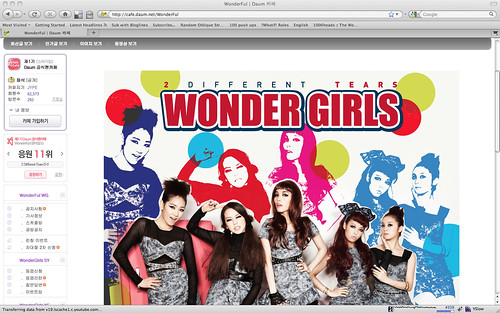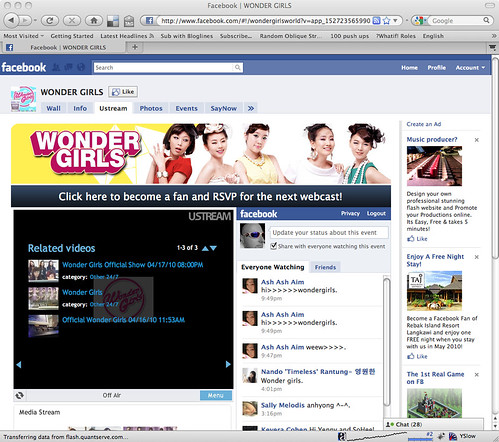Omake
Omake trends: Elle Japon x American Apparel – gives away headband with magazines. Omake pronounced ‘O-ma-ke’ means incentive. They have become a monthly magazine giveaway, particularly for fashion publications like Elle Japon. There is also a second series of magazines called eMook. An e-Mook is a brand lookbook for a season. People often bought them for the product give-away, A Bathing Ape popularised this idea outside Japan and their e-Mooks are sought after. People buy e-Mooks for the giveaway item rather than the content. Increasingly that seems to be the case with Omake as well.
China
FT.com / Comment / Analysis – China: Futuristic yet fruitful – interesting overview of the Shanghai expo
Consumer behaviour
Retailers Look to Profit From Last Century’s Styles – NYTimes.com – when you can’t trust the banks, the government, businesses and authority figures what can you trust? The past.
Culture
YouTube – chelskifl’s Channel – the seminal Pump up the Volume documentary which has interviews with the heroes I looked up to as a house DJ. Check out part three for the HotMix5 stuff. The WBMX sets of HotMix5 blew me away and fired me up to want to DJ house music
Design
Innovative Mayor Sam Adams Builds a Cleaner Portland | Fast Company – interesting use of mobile so that the public an report rubbish etc
Nokia’s designs on Apple | FT.com – interview with Marko Ahtisaari. On privacy: “The industrial logic of every single social network is that those terms of service will be renegotiated very quickly.” On interface design “All the touchscreen interfaces are very immersive. You have to put your head down. What Nokia is very good at is designing for mobile use: one-handed, in the pocket. Giving people the ability to have their head up again is critical to how we evolve user interfaces.” No comments on why the N900 and N97 are the worst of both worlds – bring back the Communicator form factor
Ethics
Did Microsoft Hire Consumer Watchdog to Attack Google? | Techrights – really really stupid, surprised Frank X Shaw wouldn’t stomp on this practice if it turns out to be true
Anti-piracy enforcers claiming to represent Microsoft used to shut down dissident media in former USSR – Boing Boing – quick denials in place otherwise this could have been a Yahoo! moment for Microsoft’s corporate reputation
FMCG
FDA Calls Marlboro Out on Creative Marketing of “Light” Cigarettes | Fast Company – I think the FDA is a bit out of whack here, although I can see where they are coming from in terms of trying to flatten the light message, for regular smokers the cigarette will be the same, same length, taste the same.
Japan
Big in Japan: Millions ‘Mumble’ on Twitter – DealBook Blog – NYTimes.com – more unique users than Mixi
Tokyo fishermen update seafood e-commerce site from their boats – Boing Boing – not surprising given that the Japanese invented JIT and lean manufacturing processes that they would extend it when the technology came available to their fishing industry
Wired 9.09: My Own Private Tokyo – William Gibson on Tokyo
Legal
Is it a good idea to kick those Downfall spoofs off YouTube? Perhaps not | Technology | guardian.co.uk – ironically exposes rights owners to legal issues
Media
France, the U.K. Take Steps Against Digital Piracy – WSJ.com
Luxury
Luxury market starts to evolve in China – hyperinflation for luxury lifestyles
Online
Yahoo wants to do what Facebook did, only slower – as the FT said: sounds familiar and unambitious
Retailing
FT.com / Companies / Retail – Gome reappoints ousted Bain directors – its like a tele-novella
Security
UK MPs call for ID cards and surveillance, but demand privacy for themselves – Boing Boing – looks like the Digital Economy Act has brought a whole pile of tech politics out of the bag






